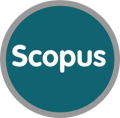Halal Politics Role in the Fight against Vote-Buying and Hoaxes
DOI:
https://doi.org/10.15575/ijhar.v2i2.8981Keywords:
election, halal politics, hoaxes, vote buyingAbstract
During the election year, political candidates apply different strategies to win the election. Some candidates resort to spreading hoaxes and vote-buying. This phenomenon has become a trouble for the country as there will be severe repercussions. Halal politics is a new concept that needs to be studied. It aims to reduce or even eradicate hoax spreading and vote-buying. It also hopes to provide a further reference in political activities for both politicians and people generally. This study used qualitative literature study and thematic interpretation to collect data that are related to halal politics. The sources of the data are study results, Quran, and scholar Quran interpretation. The study concludes that halal politics implementation depends on heavily on people's active participation in preventing and stopping hoaxes and vote-buying. Furthermore, with the increase in society's political literacy, political candidates will change their strategy for the better.
References
Abhipraya, F. A., Sadayi, D. P., & Putri, F. A. (2020). Peran Komite Independen Sadar Pemilu (KISP) sebagai LSM Kepemiluan dalam Melawan Praktik Politik Uang. Politicon: Jurnal Ilmu Politik, 2(2), 165-190.
Alvin, S. (2020). Strategi Komunikasi Politik Juru Bicara Wakil Presiden 2014-2019 sebagai Humas Pemerintah. Jurnal Komunikasi, 14(1), 43-62. https://doi.org/10.21107/ilkom.v14i1.6031
Ananingsih, S. W. (2016). Tantangan dalam Penanganan Dugaan Praktik Politik Uang Pada Pilkada Serentak 2017. Masalah-Masalah Hukum, 45(1), 49-57.
Andiraharja, D. G. (2020). Politik Hukum pada Penanganan Tindak Pidana Pemilu. Khazanah Hukum, 2(1), 24-31.
Aulia, D. (2017). Penguatan Demokrasi: Partai Politik dan (Sistem) Pemilu Sebagai Pilar Demokrasi. Masyarakat Indonesia, 42(1), 115-126.
Budiardjo, M. (2015). Dasar-Dasar Ilmu Politik (5th ed.). Jakarta: PT. Gramedia Pustaka Utama.
Budiono, A. (2019). Teori Utilitarianisme dan Perlindungan Hukum Lahan Pertanian dari Alih Fungsi. Jurnal Jurisprudence, 9(1), 102-116.
Cosans, C. E., & Reina, C. S. (2018). The Leadership Ethics of Machiavelli's Prince. Business Ethics Quarterly, 28(3), 275-300.
Creswell, J. W. (2014). Research Design; Pendekatan Kulitatif, Kuantitatif dan Metode Campuran. Yogyakarta: Pustaka Pelajar.
Fadlillah, N. (2017). Dulkadiran, Media Masyarakat Sampurnan untuk Memperoleh Keselamatan, Pahala, Syafaat, dan Surga. Al-A'raf: Jurnal Pemikiran Islam Dan Filsafat, 14(2), 167-192.
Feinberg, M., Wehling, E., Chung, J. M., Saslow, L. R., & Melvær Paulin, I. (2020). Measuring Moral Politics: How Strict and Nurturant Family Values Explain Individual Differences in Conservatism, Liberalism, and the Political Middle. Journal of Personality and Social Psychology, 118(4), 777-804. https://doi.org/10.1037/pspp0000255
Geraldy, G. (2019). Ideologi dan Partai Politik: Menakar Ideologi Politik Marhaenisme di PDIP, Sosialisme Demokrasi di PSI dan Islam Fundamentalisme di PKS. Politicon: Jurnal Ilmu Politik, 1(2), 134-157.
Golose, P. R. (2019). Strategi Penanganan Firehose of Falsehood pada Era Post-Truth (Kajian dalam rangka Menyukseskan Pemilu 2019). Jurnal Ilmu Kepolisian, 13(1), 6-15.
Goodhart, D. (2017). The Road to Somewhere: The Populist Revolt and the Future of Politics. Oxford University Press.
Harahap, A. J. (2018). Risywah dalam Perspektif Hadis. Diroyah: Jurnal Studi Ilmu Hadis, 2(2), 109-120.
Hidayatulloh, M. K. (2018). Konsep dan Metode Tafsir Tematik (Studi Komparasi Antara Al-Kumi dan Mushthofa Muslim). Al-Bayan: Jurnal Studi Ilmu Al-Qur'an Dan Tafsir, 3(2).
Isra, Y. (2018). Politik Uang dalam Perspektif Hadis Nabawi. Retrieved June 15, 2020, from Bincangsyariah website: bincangsyariah.com/kalam/politik-uang-dalam-perspektif-hadis-nabawi/%0A
Laham, S. M., & Corless, C. (2016). Threat, Morality and Politics: A Differentiated Threat Account of Moral and Political Values. Routledge/Taylor & Francis Group.
Maulana, L. (2017). Kitab Suci dan Hoax: Pandangan Alquran dalam Menyikapi Berita Bohong. Wawasan: Jurnal Ilmiah Agama Dan Sosial Budaya, 2(2), 209-222. https://doi.org/10.15575/jw.v2i2.1678
Mkrtchyan, N. (2018). The Role of Moral Values in Politics. Proceedings of the XXIII World Congress of Philosophy 69, 295-299. London: philpapers.
Ritaudin, M. S. (2016). Kekuasaan Negara Dan Kekuasaan Pemerintahan Menurut Pandangan Politik Ikwanul Muslimin. Jurnal Tapis: Jurnal Teropong Aspirasi Politik Islam, 12(1), 69-92.
Samputra, P. L., & Munandar, A. I. (2019). Korupsi, Indikator Makro Ekonomi, dan IPM terhadap Tingkat Kemiskinan di Indonesia. Jurnal Ekonomi Kuantitatif Terapan, 12(1), 35-46.
Shihab, M. Q. (2012). Tafsir Al-Mishbah (5th ed.). Jakarta: Lentera Hati.
Sugiyono. (2011). Metodologi Penelitian Kuantitatif, Kualitatif dan R&D. Bandung: Alpabeta.
Sulistiani, S. L. (2019). Analisis Maqashid Syariah dalam Pengembangan Hukum Industri Halal di Indonesia. Law and Justice, 3(2), 91-97.
Susanto, E. H. (2017). Media Sosial sebagai Pendukung Jaringan Komunikasi Politik. Jurnal Aspikom, 3(3), 379-398.
Thompson, D. F. (2013). Political Ethics. In International Encyclopedia of Ethics. Wiley Online Library.
Wisnaeni, F., & Herawati, R. (2020). The Politics of Law of Pancasila-based Democracy in Indonesia as the World's Third Largest Democracy. Academic Journal of Interdisciplinary Studies, 9(4), 39-45.
Zarkasi, D. R. (2019). Hubungan Etika Politik dan Kekuasaan. Jurnal Ilmu Sosial Dan Ilmu Politik Fisipol Universitas Jambi, 3(1), 8-17.
Zen, H. R. (2015). Politik Uang Dalam Pandangan Hukum Positif dan Syariah. Al-'Adalah, 12(1), 525-540.
Downloads
Published
How to Cite
Issue
Section
Citation Check
License
Copyright (c) 2020 Indonesian Journal of Halal Research

This work is licensed under a Creative Commons Attribution-ShareAlike 4.0 International License.
Authors who publish in Indonesian Journal of Halal Research agree to the following terms:
- Authors retain copyright and grant the journal right of first publication with the work simultaneously licensed under a Creative Commons Attribution-ShareAlike 4.0 International (CC BY-SA 4.0) License that allows others to share the work with an acknowledgment of the work's authorship and initial publication in this journal.
- Authors are able to enter into separate, additional contractual arrangements for the non-exclusive distribution of the journal's published version of the work (e.g., post it to an institutional repository or publish it in a book), with an acknowledgment of its initial publication in this journal.
- Authors are permitted and encouraged to post their work online (e.g., in institutional repositories or on their website) prior to and during the submission process, as it can lead to productive exchanges, as well as earlier and greater citation of published work (See The Effect of Open Access).

Indonesian Journal of Halal Research by Halal Center UIN Sunan Gunung Djati Bandung is licensed under a Creative Commons Attribution-ShareAlike 4.0 International License.
Based on a work at https://journal.uinsgd.ac.id/index.php/ijhar.
















